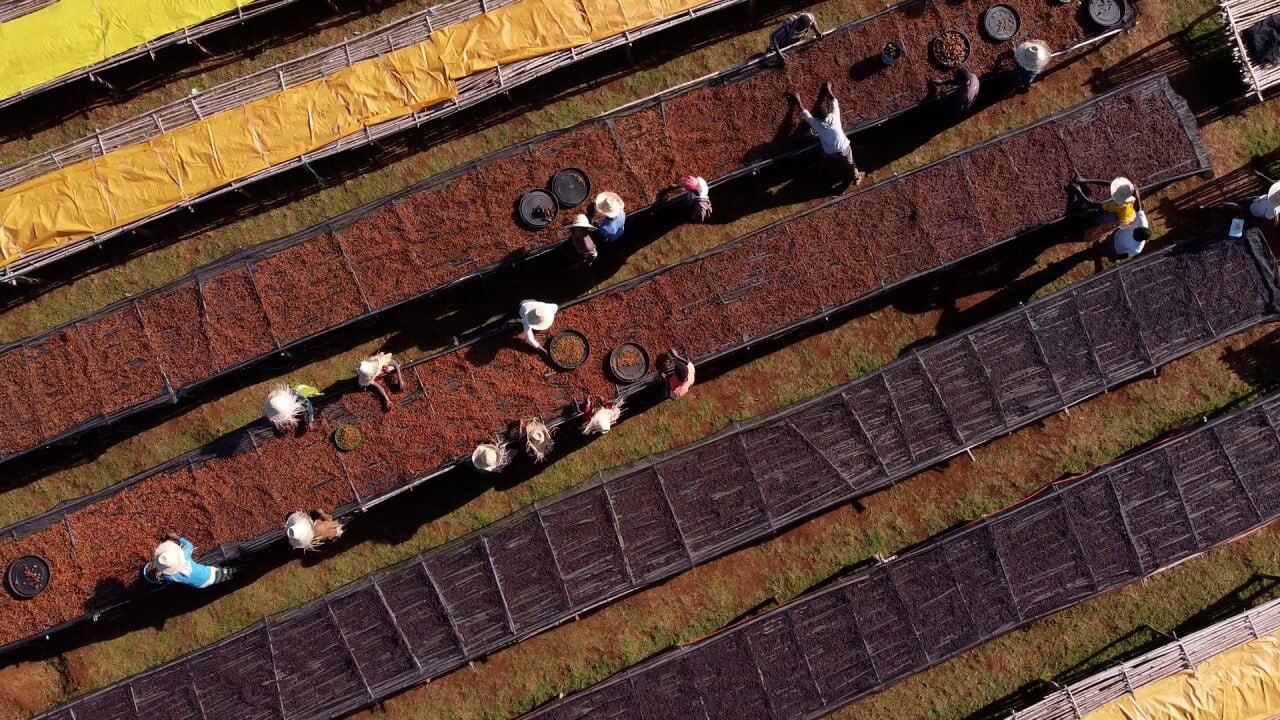This process-washed Yirgacheffe coffee is collected and prepared by our partner EDN Ethiopian Coffee.
Halo Beriti
Ethiopia - Yirgacheffe - Halo Beriti - Q1 - FW
Pick your crop :
Aromatic notes:
Spot price
€/kg
It comes from the trees of the 550 families surrounding the Halo Beriti station
Hand-picked with the utmost care, once brought to the station, the 115 employees of the Halo Beriti station set about washing the coffee. Using a pulper, the beans are separated from their skins, before being washed to remove the mucilage. This operation can take between 12 and 48 hours.
The coffee is then spread out in a thin layer on drying beds, where it will remain for several days, until it reaches a moisture content of 11% and is ready for export.
Marketing tools & Certifications
POS displays, postcards, QR codes for packaging, ...
- Ethiopia
Origin
region
Yirgacheffe terroir
Gedeb - Halo Beriti
Farm
- EDN - Ethiopian Coffee
Producer
Species
Arabica Varieties
74112,
74110
Process
Washed
Drying
Drying beds
Packaging
60kg - Jute bags
Altitude
1900 - 2300 Harvest period
November - January Type of harvest
Manual
Region Yirgacheffe
The Yirgacheffe appellation covers a limited area. It is characterised by low production volumes but high perceived quality. Yirgacheffe is the name of a town with a population of several tens of thousands. The production areas are Yirgacheffe, Kochéré, Wenago and Gelena Abaya.

Meet EDN - Ethiopian Coffee
A few words about EDN - Ethiopian Coffee
EDN - Ethiopian Coffee harvests coffee from the family farms that surround each of their stations, in the Guji and Gedeo (Yirgacheffe) areas. The farms with which EDN works are small, ranging from 1 to a few hectares maximum. The EDN stations are located in several kebele (villages), such as Benti Nenka, Banko Gotiti, Halo Bereti and Banko Chelchele. There, coffee growing is an integral part of the community's culture. Coffee is always picked by hand, and grown alongside other food crops. This approach maximises the use of the land while providing food for the community.
Analyzed to the nearest gram
Find detailed physical and sensory analyzes of your coffee in the quality sheet with:
- Density
- The humidity level
- Water activity
- Colorimetry
- The sieve
- The nature of the defects
- The score and its details
- The aromatic profile (downloadable)
Equipments selection
Unit price
€ ex.tax/U
From xx products
€ ex.tax/U
Unit price
€ ex.tax/U
From xx products
€ ex.tax/U
Unit price
€ ex.tax/U
From xx products
€ ex.tax/U
Unit price
€ ex.tax/U
From xx products
€ ex.tax/U
Unit price
€ ex.tax/U
From xx products
€ ex.tax/U
Unit price
€ ex.tax/U
From xx products
€ ex.tax/U
Unit price
€ ex.tax/U
From xx products
€ ex.tax/U
